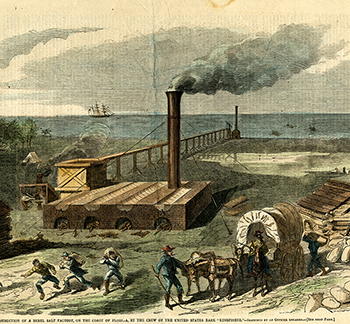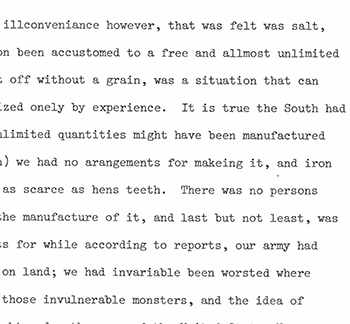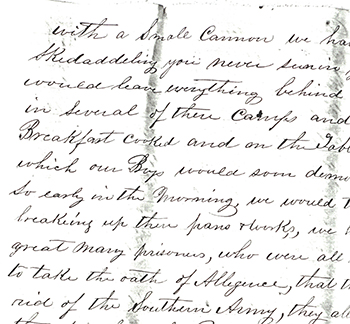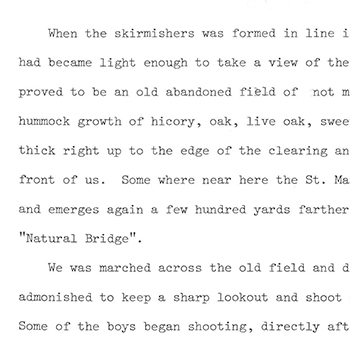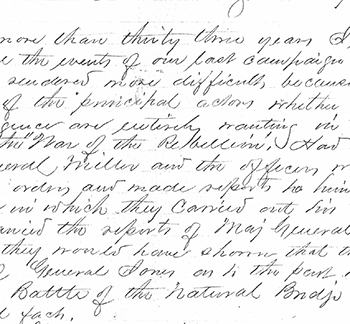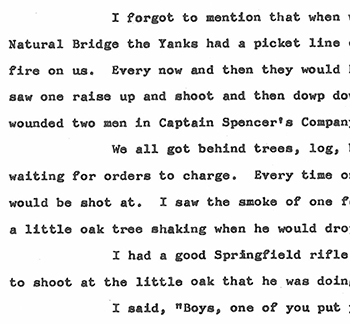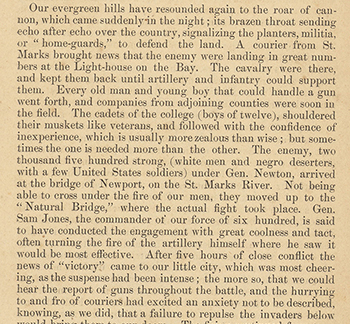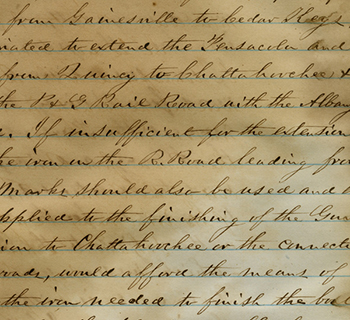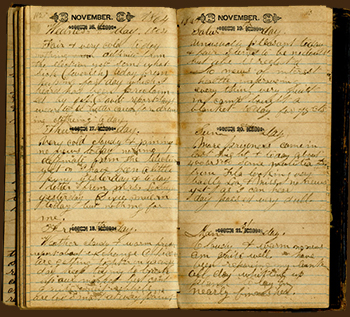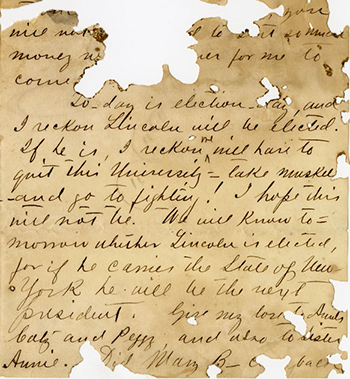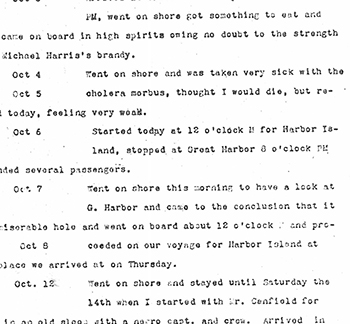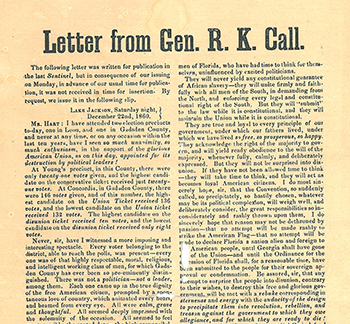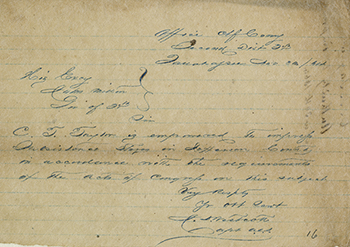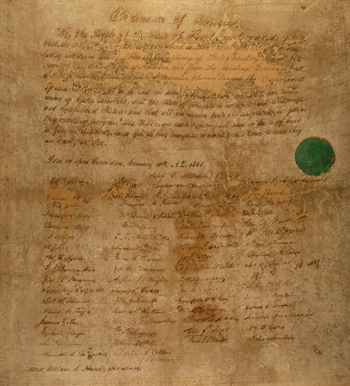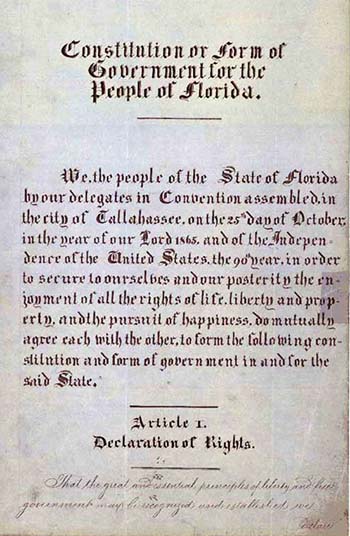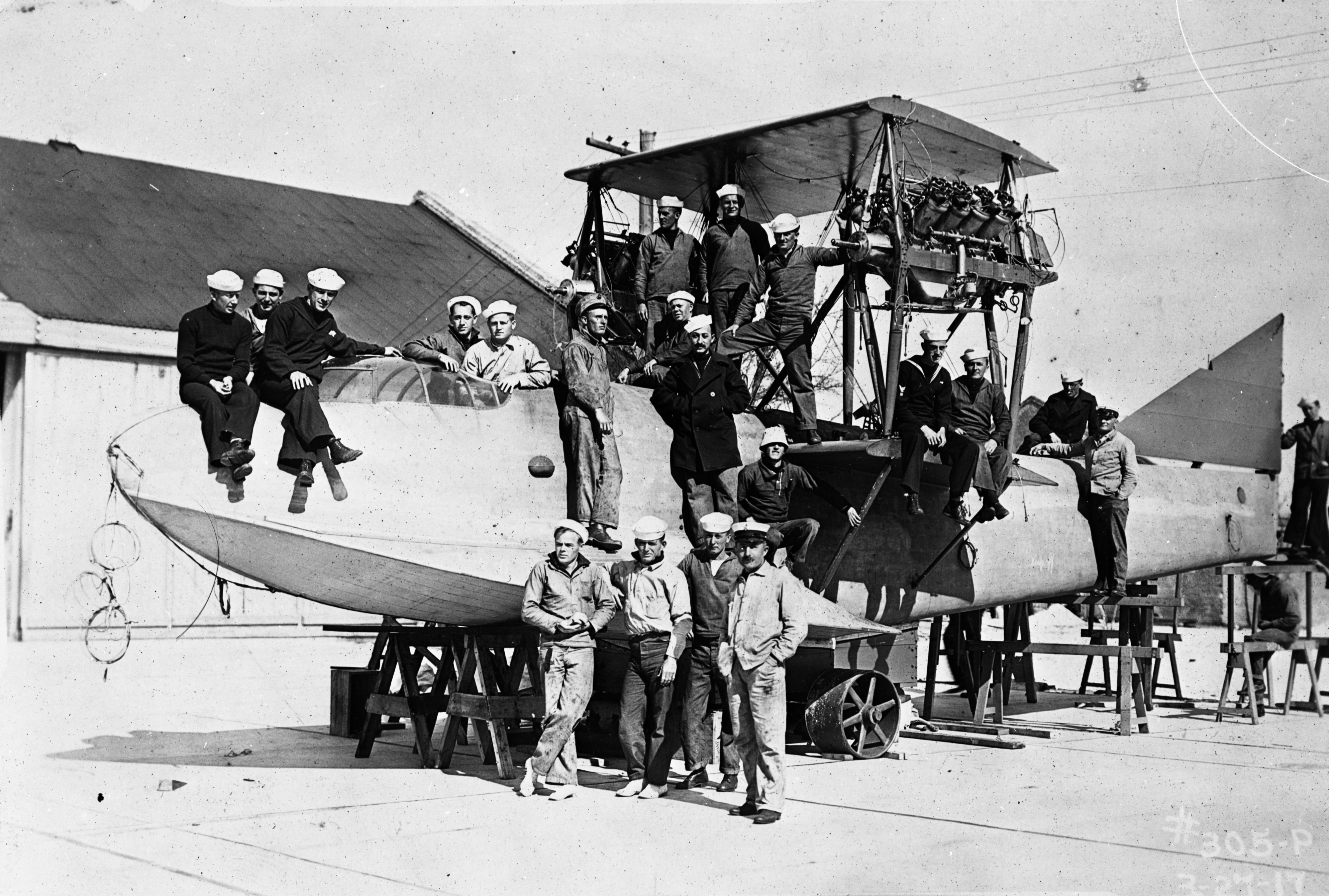Florida in the Civil War
Documents
Documents
Saltworks
Destruction of a Rebel Salt Factory, on the Florida Coast
This illustration from Harper's Weekly depicts the destruction of a salt factory on the coast of Florida.
Joshua Hoyet Frier
On his 17th birthday, May 20, 1864, Joshua Frier enrolled in a Florida militia company that eventually became the First Florida Reserves, Company B. The unit remained in north Florida throughout its service. Joshua Hoyet Frier wrote a memoir entitled Reminiscences of the War Between the States by a Boy in the Far South at Home and in the Rank of the Confederate Militia. This selection deals with the shortage of salt during the war.
Louis James M. Boyd
"... we would leave the Ship about four O’clock in the Morning, and proceed up the Bay until we would discover Smoke, for that is the only way that those pans can be found by a Stranger..."
This letter describes the destruction of the rebel salt pans along the Florida coast. It was written by Louis James M. Boyd to his wife, Jannie, on November 29, 1862. Boyd served as a 3rd Assistant Engineer aboard the U.S. gunboat Albatross during the Civil War.
The Battle of Natural Bridge
Joshua Hoyet Frier
On his 17th birthday, May 20, 1864, Joshua Frier enrolled in a Florida militia company that eventually became the First Florida Reserves, Company B. The unit remained in north Florida throughout its service. Joshua Hoyet Frier wrote a memoir entitled Reminiscences of the War Between the States by a Boy in the Far South at Home and in the Rank of the Confederate Militia. This selection deals with the battle at Natural Bridge.
General William Miller on Natural Bridge
General William Miller was second in command for the Confederate forces at the Battle of Natural Bridge in March 1865. This is an excerpt from his recollections.
Excerpt from S.M. Hankins' Recollections of the Battle of Natural Bridge
"We expected to meet Yanks any minute. However, we did not meet them until we got near St. Marks, at a place called Natural Bridge."
The following is an excerpt from the recollections of Sylvanus M. Hankins about his experiences as an enlisted soldier during the American Civil War in Florida. Hankins' company was one of the units that fought at the Battle of Natural Bridge in March 1865.
Ruth in Florida Breezes
"Our evergreen hills have resounded again to the roar of cannon..."
In this excerpt from a letter, Ruth describes the Battle of Natural Bridge from the perspective of a civilian living in Tallahassee during the fighting.
Railroads
Florida had only a few railroads when the Civil War began. Union attacks destroyed some sections of the Florida railroads. Florida's Confederate government temporarily removed tracks in other locations to prevent Union forces from using the railroads.
The Confederate government also moved to seize existing rails to reuse the iron for new rail lines to transport troops and supplies.
Governor John Milton vs. David Yulee, 1863
"I have respectfully urged upon you as President of the road, to yield the iron from certain parts of the road..."
Governor Milton recommends seizing iron rails from the Florida Railroad Company to build new rail lines to transport troops and supplies. David L. Yulee, president of the Florida Railroad Company, disagrees.
Letters and Diaries
Wilber Wightman Gramling Diary
"Great speculation about the election. Some say that Lincoln is elected and some say Mac."
Wilber Wightman Gramling’s diary is one of the few surviving diaries written by a Florida soldier during the Civil War. Among the entries are seven references to Lincoln or "Abe."
John D. Pittman Letters
"Today is election day, and I reckon Lincoln will be elected. If he is, I reckon we will have to quit this University — take muskets and go to fighting!"
John D. Pittman’s first year of college was unusually dramatic. Traveling from his home in Marianna, Florida, to begin classes at the University of Virginia, Pittman arrived in Charlottesville in October 1860. A month later, Abraham Lincoln was elected president, and on December 20, South Carolina seceded.
Robert Watson Diary
"I forgot to mention that President Lincoln and some of his cabinet were assassinated on Saturday night."
Watson left Union-occupied Key West in September 1861 and he enrolled in a Florida "Coast Guard" company at Cedar Key. In April 1862, this company was mustered into Confederate service as Company K, Seventh Florida Infantry Regiment. Watson's company remained along Florida's west coast, primarily at Tampa and Point Pinellas, until late June, when it joined the Confederate Army in Tennessee.
Letter from General Richard Keith Call
"There are no men in your State, sir, who will resent an insult, or avenge a wrong to Florida, with more promptitude — more spirit and pride, than they. There are none who will resist the Black Republicans with more firmness and energy — none who will take up arms sooner — none who will fight more bravely, under the stars and the stripes of the Union; but they will not be led like slaves — they will not be lead, or driven, into revolution, rebellion and treason against their country."
Written on the eve of the Civil War, this letter from former Florida governor General Richard Keith Call expresses his pro-Union, pro-Southern sentiments.
Government Documents
Impressment Certificate
This is a certificate notifying Governor Milton that C.T. Taylor was empowered to conduct impressment single-handedly in Jefferson County in 1864.
Ordinance of Secession, 1861
After Abraham Lincoln won the presidential election of 1860, Florida Governor Madison Starke Perry responded by urging state legislators to call a convention to consider the question of whether to secede from the Union. The legislature acted, and Florida's Secession Convention met in Tallahassee on January 3, 1861. On January 10, the delegates adopted an Ordinance of Secession, formally dissolving Florida’s ties with the United States.
1865 Constitution
To re-enter the Union under Presidential Reconstruction, a constitution was created by a convention called by the appointed governor. This constitution was never fully in effect. The U.S. Congress rejected it and put Florida under Radical Reconstruction (i.e., military rule) until 1868.

 Listen: The Blues Program
Listen: The Blues Program